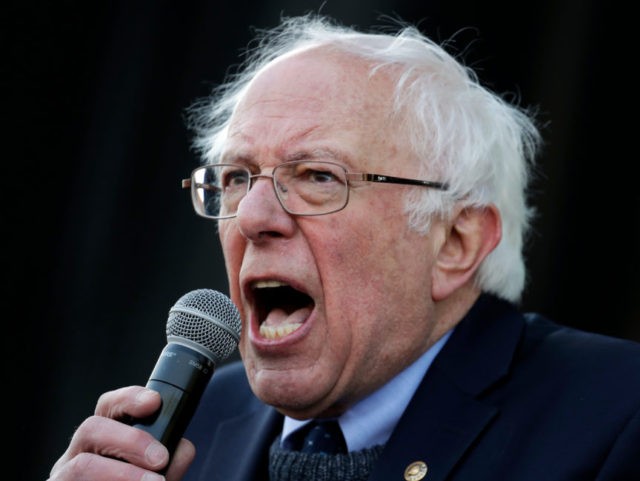WASHINGTON (AP) — The “resistance warriors” are coming.
Hundreds of liberal candidates, most running in state and municipal elections this fall, are streaming into Washington this week as the Democratic Party’s left flank intensifies in its push to seize control of Congress, statehouses and local governments across the country.
They are excited. They are angry. And animated by opposition to President Donald Trump, they are ready to fight any calls to moderate their liberal passions.
“We’re at a moment when we need to be unapologetic,” said Greg Edwards, one of a half dozen Democrats running for Congress in Pennsylvania’s 7th district, which is considered a prime pickup opportunity for his party.
An “ardent” supporter of Vermont Sen. Bernie Sanders in the last presidential election, Edwards wants a single-payer health care system, universal preschool, “debt-free” college and a $15-per-hour minimum wage. And he knocks “centrists” in his own party who may be willing to compromise their liberal values to get elected.
He is not alone.
Roughly 450 like-minded Democrats are gathering in Washington on Thursday for a four-day conference that offers a new window into intraparty tensions over how to capitalize on the surge in grassroots enthusiasm in the age of Trump.
This collection of energized Democrats, described as “resistance warriors” by organizers, is convinced that their party will lose this fall if it doesn’t embrace a broad slate of uncompromising progressive candidates who deliver “an Elizabeth Warren-style economic populist message,” said Adam Green, co-founder of the Progressive Change Campaign Committee, which coordinated this week’s gathering along with the Sanders-backed Our Revolution.
“Not only can you run on your values and win, but it is necessary to do so in some of these red districts,” Green said.
Liberal icons Sanders and Massachusetts Sen. Elizabeth Warren will headline a program that’s designed to give lesser-known Democratic candidates at all levels a crash course on winning in the Trump era.
It’s not enough to simply oppose the Republican president, organizers say.
Participants will learn how to look good on television, find donors, design websites and, perhaps most importantly, develop a message around progressive economic priorities. The progressive movement’s most aggressive allies are expected to be on hand: groups such as Indivisible, Planned Parenthood and the AFL-CIO.
Privately, at least, some Democrats are reluctant to embrace a strategy that appeals most to the Democratic Party’s most liberal voters, particularly when much of the most competitive races this fall will take place in regions Trump won two years ago.
Jesse Ferguson, a Democratic strategist who worked for Hillary Clinton’s presidential campaign, suggested that tension within the party can be healthy.
“Competitive primaries help organize and help fuel the enthusiasm that’ll help us take control,” he said. “Candidates don’t need to move all to the left or all to the center. They need to come across as running for what they genuinely believe.”
Republicans, meanwhile, are cheering Democratic efforts to move further to the left, certain that candidates who emulate Sanders and Warren will alienate the moderate voters and disaffected Trump supporters who might otherwise back Democrats this fall or sit out the midterm elections altogether.
“It’ll be tough to fight that winning message that Elizabeth Warren sends out to the world: socialism,” said a sarcastic Doug Deason, a prominent Texas donor who is helping fund the GOP’s midterm efforts. “That’s great. That’s what they should embrace.”
Participants will represent at least 47 states, with the largest delegations coming from a collection of red and blue states, including New Jersey, Texas, California, Florida, Massachusetts, Pennsylvania and New York.
Organizers report that 64 percent of the candidates are running in districts Trump won in 2016. More than 80 percent have never held office; 40 percent are people of color; 71 percent are under the age of 44; and 20 percent come from the LGBTQ community.
Back in Pennsylvania’s 7th district, Edwards offered a message for Democratic candidates who think they can win this fall simply by bashing Trump.
“Trump is not our disease. Trump is a symptom,” said Edwards, an African-American pastor. “And I would say to any person running for any seat, specifically at the federal level, if you are running against Donald Trump, that is a reactionary campaign. We need to be visionary.”

COMMENTS
Please let us know if you're having issues with commenting.